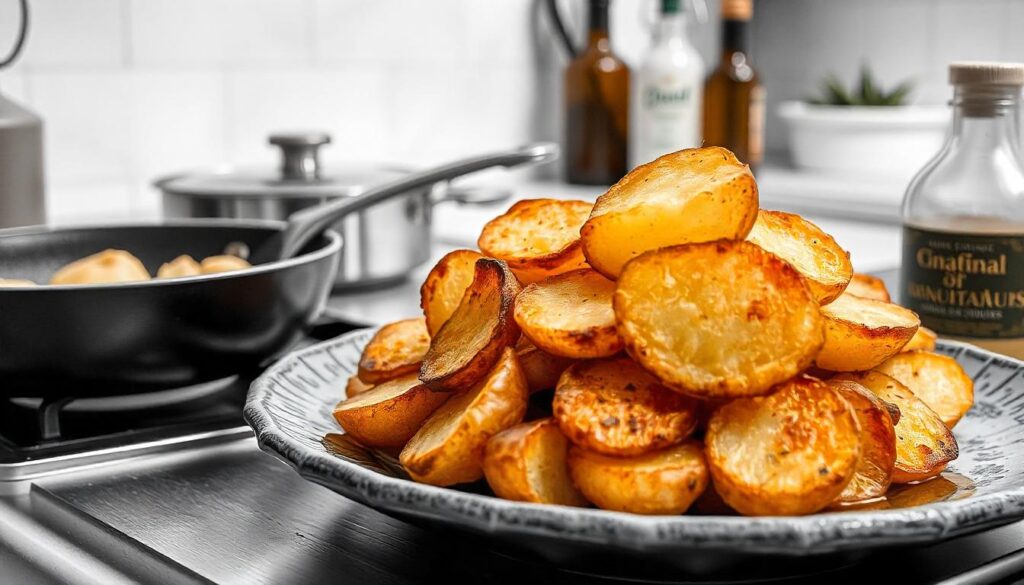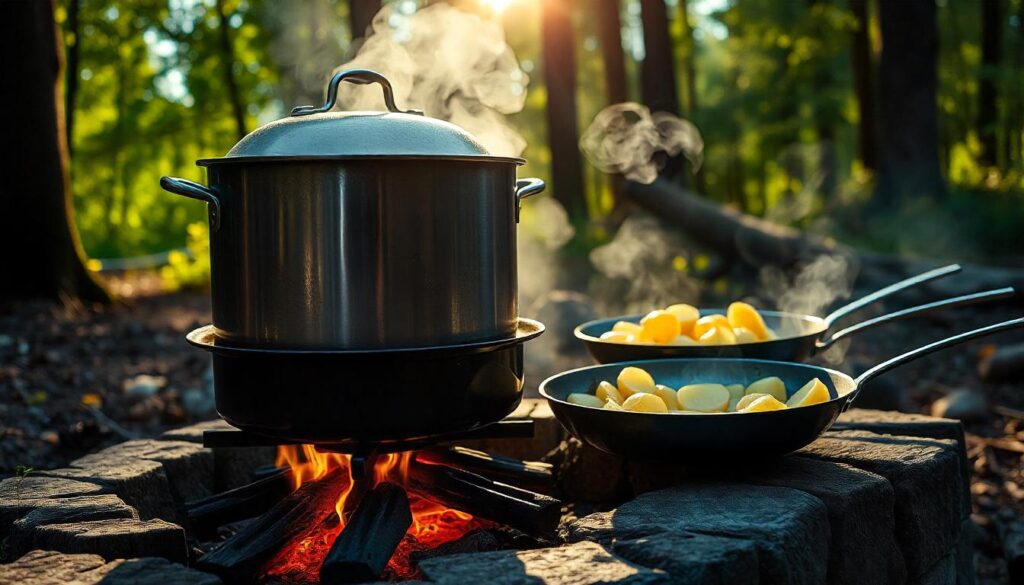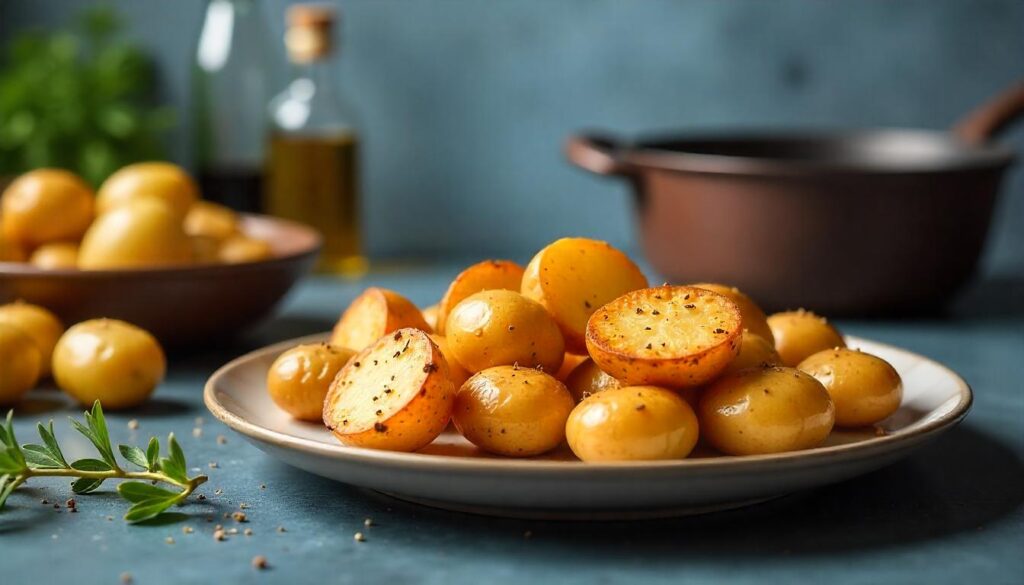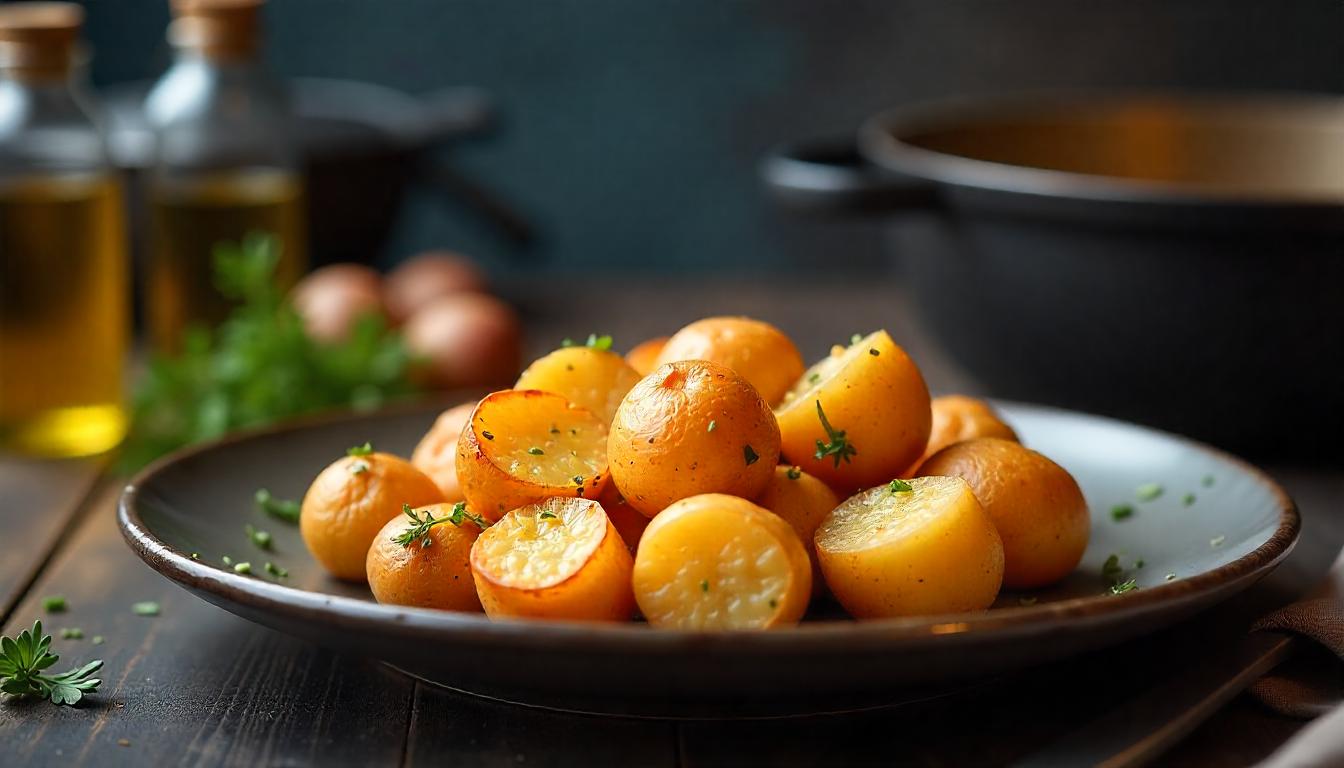Fried potatoes hold a special place in the hearts and kitchens of many, whether as crispy French fries, golden hash browns, or hearty home fries. Yet, one question often stirs debate: should you boil potatoes before frying? While some swear by this extra step to achieve the perfect texture, others skip it for convenience. To clarify this culinary conundrum, we will explore the benefits, drawbacks, and techniques associated with boiling potatoes before frying. Additionally, we’ll provide practical tips and delve into alternative methods to help you achieve perfect fried potatoes every time.

Understanding Why Boiling Potatoes Before Frying Matters
To begin with, boiling potatoes before frying can significantly impact their final texture and cooking process. Potatoes, being rich in starch, behave uniquely when exposed to different cooking methods. By boiling, you gelatinize the starch, which essentially softens the interior while prepping the surface for the crispy exterior we all crave.
Moreover, this process pre-cooks the potatoes, which means they require less time in the frying pan or fryer. For those aiming to master the art of frying, understanding how boiling fits into the broader preparation process is essential.
What Happens When You Boil Potatoes First?
When you boil potatoes before frying, several beneficial changes occur:
- Starch Modification: Boiling allows the starches inside the potato to gelatinize, creating a fluffy interior. This is particularly important for starchy potatoes like Russets.
- Softened Exterior: A brief boil softens the outer layer, making it easier to achieve a uniform crispiness when fried.
- Even Cooking: Parboiling ensures the potato cooks evenly, reducing the likelihood of raw or undercooked centers.
For more on how potatoes behave under different cooking methods, you can explore this detailed guide on fried potatoes and onions.
The Benefits of Boiling Potatoes Before Frying
It’s easy to see why so many people advocate for boiling potatoes before frying. The benefits extend beyond just taste and texture, offering practical advantages for both novice and experienced cooks.
1. Improved Texture
Arguably, the most significant advantage of boiling is the textural improvement. Parboiling ensures that the inside of the potato remains soft and fluffy, while the exterior develops a golden, crispy crust when fried. This is particularly useful for thick-cut options like steak fries or potato wedges.
2. Shorter Frying Time
Another key benefit is reduced frying time. By pre-cooking the potatoes, you minimize the amount of time they need in hot oil. This not only speeds up the cooking process but also reduces the risk of overcooking or burning the exterior.
3. Healthier Frying
Boiling potatoes can also make frying healthier. By removing excess starch, you decrease the formation of acrylamide, a potentially harmful compound that forms when starchy foods are fried at high temperatures. For health-conscious cooks, this can be a compelling reason to adopt the technique.
To explore a creative way of using potatoes in a healthier dish, consider checking out this recipe for crock-pot potato soup.
Potential Drawbacks of Boiling Before Frying
Despite its many benefits, boiling potatoes before frying is not without its downsides. It’s important to weigh these drawbacks against the advantages to determine whether this method suits your cooking style.
1. Additional Prep Time
One of the most common complaints is that boiling adds an extra step to the cooking process. For those in a hurry, this might feel like a dealbreaker. However, the added time can be minimized by boiling in advance or preparing larger batches.
2. Risk of Overcooking
Boiling potatoes for too long can result in overly soft or mushy textures. This makes them difficult to handle during frying, often leading to broken or uneven pieces.
3. Potential Flavor Loss
Another drawback is the potential loss of flavor. When boiled, some of the potato’s natural taste can leach into the water, especially if they are not seasoned during the process.

Step-by-Step Guide to Boiling Potatoes Before Frying
Now that we’ve discussed the pros and cons, let’s dive into the process itself. By following these steps, you can master the art of boiling potatoes before frying.
1. Choose the Right Potatoes
The type of potato you use matters greatly. For the fluffiest interiors, opt for starchy varieties like Russets. If you prefer a firmer texture, go for waxy potatoes such as Yukon Gold or Red Bliss.
2. Cut Potatoes Uniformly
Cutting your potatoes into even pieces ensures consistent cooking. Uneven sizes can result in overcooked small pieces and undercooked larger ones.
3. Boil in Salted Water
Bring a pot of salted water to a boil and add your potatoes. The salt not only seasons the potatoes but also helps them retain their structure.
4. Parboil, Don’t Fully Cook
Boil the potatoes for 5–10 minutes, depending on their size. They should be tender enough to pierce with a fork but not fully cooked.
5. Cool Thoroughly
Allow the boiled potatoes to cool completely. Cooling helps them firm up, making them easier to handle and less likely to break apart during frying.
6. Fry at High Heat
Heat a neutral oil, such as canola or vegetable oil, to around 375°F (190°C). Fry the potatoes until golden brown and crispy.
Alternative Methods to Boiling
For those who find boiling cumbersome, there are other techniques to achieve crispy fried potatoes:
1. Direct Frying
Skip the boiling and fry raw potatoes directly. This works best for thinner cuts like shoestring fries or chips.
2. Soaking in Water
Soaking raw potato slices in cold water for 30 minutes removes excess starch, leading to a crisper texture.
3. Air Frying
For a healthier option, use an air fryer. It requires minimal oil while still delivering crispy results.
FAQs About Boiling Potatoes Before Frying
Do you need to boil potatoes for all frying recipes?
No, boiling is optional. Thinner cuts or waxy potatoes can often be fried directly without boiling.
How long should you boil potatoes before frying?
Boil for 5–10 minutes, depending on the size and type of potato. They should be slightly tender but not fully cooked.
Can you prepare boiled potatoes in advance?
Yes, you can refrigerate boiled potatoes for up to 24 hours before frying, making this method more convenient.
Related Recipes and Inspiration
If you’re looking for more ways to incorporate potatoes into your meals, consider these ideas:
- Pair your fried potatoes with a classic mashed potato and gravy recipe.
- Learn how to thicken soups like a pro with this guide to thickening potato soup in a crock pot.
Final Thoughts
In conclusion, boiling potatoes before frying is an effective method for achieving crispy exteriors and fluffy interiors. While it may require extra time, the results often justify the effort. That said, alternative methods like direct frying or soaking also have their place in the kitchen. Ultimately, the choice comes down to your preferences and available time.

Experiment with these techniques, and don’t forget to explore related recipes to further elevate your culinary skills. Whether boiled, soaked, or fried straight from raw, one thing is certain: perfectly fried potatoes are always worth the effort!

